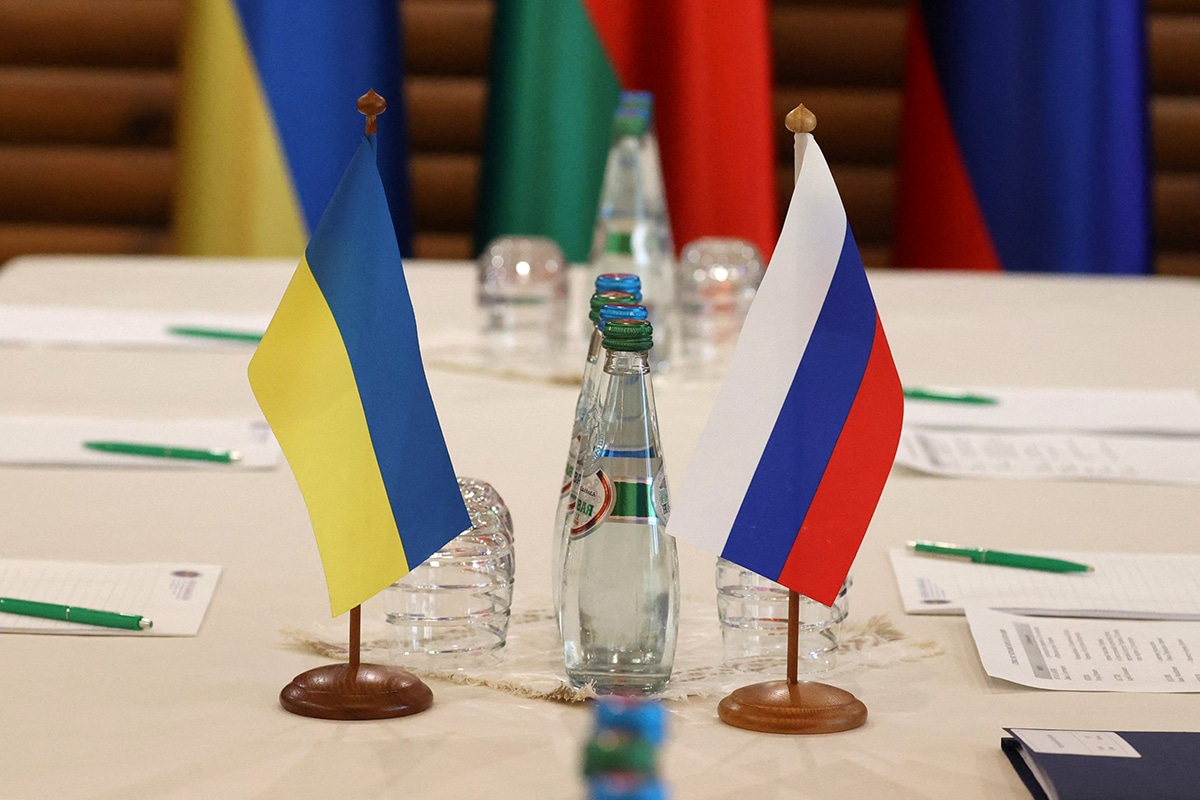Russia-Ukraine Ceasefire Would Have Limited Impact On UAE Banks, S&P Says

A potential ceasefire between Russia and Ukraine would have only limited effects on United Arab Emirates banks, which have sufficient liquidity to withstand possible Russian deposit outflows, S&P Global Ratings said in a report on Tuesday.
The rating agency noted that diplomatic efforts to reach a ceasefire agreement are gaining momentum, though it emphasised “a high degree of uncertainty about the extent, outcome, and consequences” of any resolution to the conflict.
UAE banks’ resilience amid ceasefire
“In our view, the potential implications of a hypothetical ceasefire scenario for the UAE banking system are limited,” S&P said, identifying deposit outflows, softening residential real estate, and potentially lower oil prices as the main channels of transmission.
UAE banks have seen deposits grow faster than normalised rates in 2023-2024, with some of these flows likely related to the Russia-Ukraine war, according to the report. However, S&P highlighted that as of November 30, 2024, UAE banks’ liquid assets were equivalent to three times total deposit inflows between 2022 and November 2024.
“UAE banks have more than enough liquidity to deal with potential outflows,” the rating agency said, adding that even if most Russian nationals returned to their home country, they might maintain some presence in the UAE to benefit from its “flexible and supportive economic environment” and “low tax regime”.
The report also addressed concerns about the UAE’s real estate sector, where Russians have been among the top nationalities buying or renting property in Dubai over the past three years.
Direct exposure to construction and real estate accounted for 14.4 per cent of banks’ lending exposures in the UAE as of November 2024. However, S&P does not anticipate “a significant disruption to the residential real estate sector, even if we were to see significant property divestments by Russians, given continuous strong demand and population growth”.
The agency expects the UAE’s real GDP growth to accelerate and remain close to 4.4 per cent on average over 2025-2027, following 3.4 per cent growth in 2024, assuming a gradual unwinding of OPEC+ oil production cuts and continued strong non-oil growth.
S&P also forecasts oil prices to remain at around $70 per barrel over the next couple of years, though it acknowledged that the impact of potential sanctions relaxation on oil prices is difficult to predict.
The rating agency expects UAE banks to “continue to display strong asset quality indicators” and that recent changes to provisioning rules by the UAE central bank will further increase nonperforming loan coverage ratios, which were close to 100 per cent in 2024.
Saudi SME Bank Signs $801m Agreements To Expand Development Finance And Boost SME Growth
Saudi SME Bank signed $801m in agreements at MOMENTUM 2025 to expand development finance and strengthen SME funding Th... Read more
Crypto In The Spotlight As ADGM Reveals Next Wave Of Digital Asset Rules
FSRA’s latest regulatory enhancements target stronger supervision while supporting innovation across the region’s d... Read more
UAE Announces Two Tiers Of Sugar Tax Starting The New Year
Ministry of Finance announces tiered taxes ranging AED0.79-AED1.09 per litre on drinks that have more than 5 grams of s... Read more
Solmates Santori Says The UAE Is The Place To Build A “new Wall Street”
The Abu Dhabi-based company’s CEO says strategic location, proximity to capital ,and business-friendly environment ar... Read more
UAE, Saudi Arabia, Qatar, Kuwait And Bahrain Cut Key Interest Rates By 25bps Following US Fed Move
GCC central banks, including the UAE, Saudi Arabia, Qatar, Kuwait and Bahrain, cut key interest rates by 25bps after US... Read more
EDB Sets Up Abu Dhabi Office To Link Gulf Capital With Central Asian Projects
New ADGM platform will channel investment into infrastructure, sustainability and Islamic finance opportunities across ... Read more

